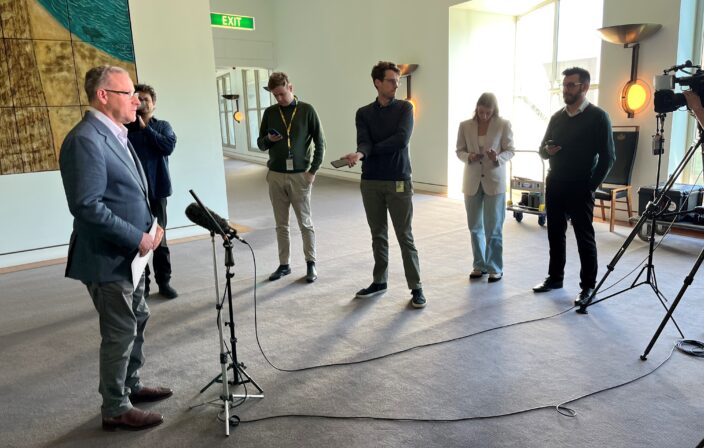Andrew McKellar interview with Ross Greenwood, Sky News Business Now
21 Mar 2023
|News
Event: Andrew McKellar interview with Ross Greenwood, Sky News Business Now.
Speakers: Andrew McKellar, chief executive Australian Chamber of Commerce and Industry; Ross Greenwood, host Sky News Business Now.
Date: 21 March 2023.
Topics: ACCI-Westpac Industrial Trends Survey, interest rates, labour shortages, energy costs, next RBA rates decision, industrial relations changes.
E&OE
Ross Greenwood, host Sky News Business Now: Today, the index of the country’s longest-running business survey, that’s run by Westpac and the Australian Chamber of Commerce and Industry showed a little bit of an uptick in March, but it’s an uptick off a very low base. So, let’s bring in here Andrew McKellar, chief executive of the Chamber of Commerce and Industry. Andrew, always good to talk to you. It’s a sobering reality, just the challenges that face most Australian businesses right now.
Andrew McKellar, chief executive Australian Chamber of Commerce and Industry: Hi, Ross. That’s exactly right and, look, I’d summarise it by saying that the cost crisis continues. What the latest survey shows is that businesses really face a cocktail of higher inflation, they’re dealing with spiralling energy costs, they are dealing with continuing shortages in terms of labour supply. So look, it’s a difficult mix and I think as we look forward, the outlook, the level of pessimism in business about some of the challenges that they’re likely to face over the next one, two, three quarters really is, cause for concern.
Ross: Okay. So we’ve seen collapses in the construction industry. We’ve seen the same thing in the transport industry. And we understand what’s been seen publicly is only a glimpse of what’s happening at the lower end of many of those industries. Is the same fear there for our manufacturing industries, for many of our services industries as well?
Andrew: Well, it is, and I think particularly this survey reflects the situation facing manufacturing, so they are under pressure. Certainly, the outlook is not optimistic. I think one of the most worrying things here, Ross, is that in particular it’s around investments. So we are seeing the impact of higher interest rates coming through. We’re seeing the fact that margins are being squeezed. Businesses are facing significantly higher input costs. They can’t pass that fully through. And as a result, investment is being wound back. Now, that is not a good recipe if we’re going to build confident, productive, efficient, profitable companies for the future.
Ross: What about the Reserve Bank right now due to make another decision in just two weeks’ time? What about its role in the conditions that companies are currently facing?
Andrew: I do think here they’ve got to take stock. There are real concerns that over the next couple of months we could start to see some of the chickens come home to roost. We don’t want to see firms going to the wall as a result of the pressures of higher interest rates adding to what is already a pretty dangerous mix. I think it would be time for the Reserve Bank to take stock, to pause, not increase interest rates at its next meeting. If you put that back-to-back with what we’ve seen around the world in terms of some of the pressures that are emerging in financial markets over recent days, then really I think we would be urging caution ahead of that Reserve Bank meeting.
Ross: Is the federal government adding to that concern to the uncertainty by its industrial relations reforms, trying to consolidate some of those awards and the collective bargaining and then, on top of that, even in regard to the way in which businesses might even operate in the future?
Andrew: Look, I think that’s hard to say. I mean, there are things that the federal government can do here as it prepares the ground for its budget. It’s got some big challenges there. Of course, business has some concerns about the industrial relations reform agenda. We don’t think that the reforms that were passed late last year went in the right direction. Those haven’t really had effect yet, though most of them will come into effect in the second half of the year. There are more changes in the pipeline. We’re yet to see the detail, but obviously, these are issues. If we’re going to really address the productivity challenges, if we’re going to be able to sustain a strong labour market, keep the economy at or near full employment, then the way we take that forward with the future industrial relation changes, that will have an important impact.
Ross: Andrew McKellar, chief executive of the Chamber of Commerce and Industry, always good to chat to you. Many thanks for your time today.


